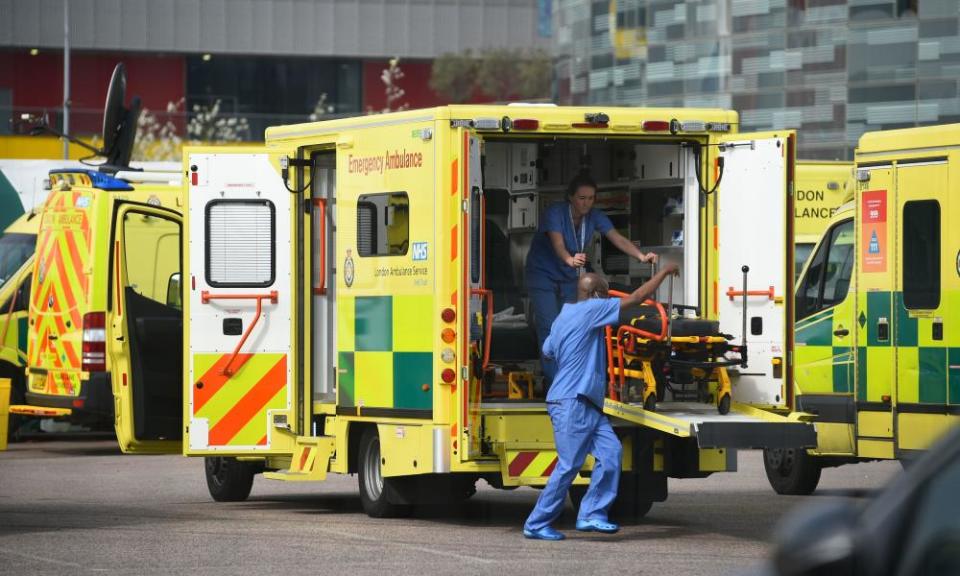NHS denies elderly people were refused care during early Covid

NHS bosses have denied claims that thousands of frail elderly people were denied potentially life-saving care at the peak of the pandemic in order to stop the health service being overrun.
NHS England took the unusual step on Sunday of issuing a 12-page rebuttal to allegations in the Sunday Times that patients deemed unlikely to survive were “written off” by being refused intensive care.
Prof Stephen Powis, NHS England’s national medical director, said: “These untrue claims will be deeply offensive to NHS doctors, nurses, therapists and paramedics, who have together cared for more than 110,000 severely ill hospitalised Covid-19 patients during the first wave of the pandemic, as they continue to do today.
“The Sunday Times’ assertions are simply not borne out by the facts. It was older patients who disproportionately received NHS care. Over two-thirds of our Covid-19 inpatients were aged over 65.
“The NHS repeatedly instructed staff that no patient who could benefit from treatment should be denied it and, thanks to people following government guidance, even at the height of the pandemic there was no shortage of ventilators and intensive care.”
The newspaper claimed the high coronavirus infection rate in the UK before lockdown began on 23 March and the NHS’s limited supply of mechanical ventilators going into the pandemic meant that “the government, the NHS and many doctors were forced into taking controversial decisions – choosing which lives to save, which patients to treat and who to prioritise – in order to protect hospitals”.
The Sunday Times said its claims were the result of a three-month investigation that involved speaking to more than 50 sources in the NHS and the government about the health service’s response to the pandemic.
As a result, they decided to stop “large numbers of elderly and frail patients” going into hospital in the first place, so that intensive care wards would not be overwhelmed, which meant that many patients died of Covid-19 at home or in care homes, it added. Ambulance crews and hospitals were told to be more selective than usual about who should be admitted, “with specific instructions to exclude many elderly people”, the Sunday Times said.
Dr Alison Pittard, the dean of the Faculty of Intensive Care Medicine, said patients had not been denied care. “Throughout the first wave of Covid-19 the NHS did not run out of critical care capacity, which remained available to everybody who would benefit from it,” she said.
The Sunday Times pointed out that of the 59,000 excess deaths in England and Wales in the first six months of the pandemic, only 8,000 occurred in hospital, while 26,000 were in care homes and 25,000 in private homes. It also claimed that an “age-based frailty score” commissioned by Prof Chris Whitty, England’s chief medical officer, played a key role in the alleged policy of denying care.
A spokesperson for the Intensive Care Society said, however, that while an expert group did undertake work on developing guidance for doctors on which patients should be prioritised for admission, it was “subsequently stood down on 28/29 March 2020, with Department of Health and Social Care or NHS implementation, after a review of capacity and pandemic trajectory”.
NHS sources are adamant that “NHS hospitals did not run out of intensive care beds, so there was never a need to refuse anyone treatment on the basis of NHS capacity. There was categorically no blanket national decision to refuse care to any group of people, including on the basis of their age”.

 Yahoo Finance
Yahoo Finance 